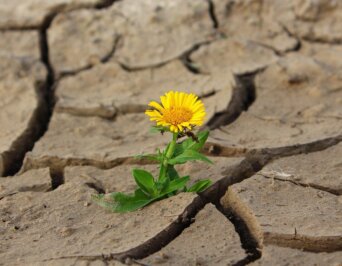- About
- Topics
- Picks
- Audio
- Story
- In-Depth
- Opinion
- News
- Donate
- Signup for our newsletterOur Editors' Best Picks.Send
Read, Debate: Engage.
| topic: | Poverty |
|---|---|
| located: | Costa Rica, Mexico |
| editor: | Ellen Nemitz |
It's no news that the Covid-19 pandemic has brought with it some hard consequences, especially to the poorest countries and the less privileged people. A report from the Economic Commission for Latin America and the Caribbean (ECLAC) and the Food and Agriculture Organization of the United Nations (FAO) published in June indicates that "the population living in extreme poverty in Latin America and the Caribbean could reach 83.4 million people in 2020”. In consequence, this contingent, which is equivalent to the population of a country such as Germany, will be at higher risk of experiencing food insecurity.
The two institutions have listed in the document: "Preventing the COVID-19 crisis from becoming a food crisis: Urgent measures against hunger in Latin America and the Caribbean,” ten measures to deal with one the greatest challenges of recent times in the region, which had been achieving some advances against poverty recently – the FAO’s Regional Representative, Julio Berdegué, said that the setbacks may represent a loss equivalent to fifteen years of achievements. Among the suggestions, there is the financial support to family agriculture producers, the expansion of programs of self-consumption production and the reinforcement of school-based food programs – for some children, accessing meals at school is the only way to access high nutritional food.
Local experiences are helpful in proving that sustainability also might be a valuable way of dealing with poverty. One of these successful cases was told by the World Economic Forum. In Mexico, the indigenous people are “transforming their lives through the power of trees.” A social enterprise provides interest-free loans to support the plantation of pine trees, which produce resin, an economic valuable commodity used in a variety of products.
When the forests become productive and profitable, the communities pay the loan. Since 2009, the project has helped to raise more than 4 thousand hectares of green land and around 18 thousand dollars per year. The goal is to achieve an area the size of Boston city and bring a billion-dollar revenue. The pine trees also protect water sources and consequently make agriculture more profitable, besides helping to catch carbon from the air, slowing global warming.
Another example is Costa Rica, a country which successfully discovered that taxing fossil fuels could fund reforestation and, with that, bring tourism that helps communities, in a virtuous cycle.
These are some examples of how nature-based solutions can at the same time restore ecosystems and fight poverty and hunger. In order to launch the Trillion Trees Challenge, the World Economic Forum said: "Done the right way, nature-based solutions not only deliver biodiversity protection, climate change mitigation and adaptation, but they also offer effective routes to job creation and sustainable economic development.”
Although it does not walk alone toward the ultimate solution, nature restoration can be a major part of addressing big modern problems: biodiversity loss, climate change and poverty. In the words of Sir David Attenborough: "if we take care of nature, nature will take care of us."
Image by klimkin

